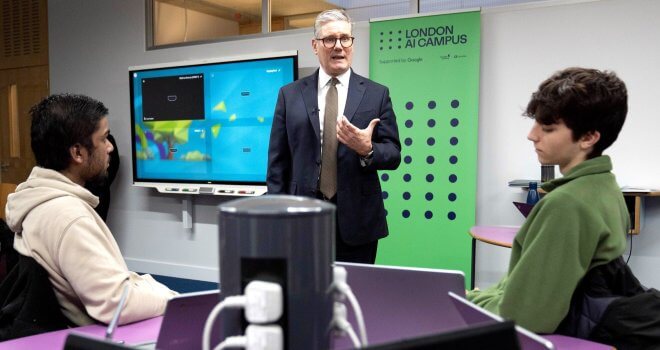Five Tips For Organising A Hybrid Event

With lockdown restrictions coming to an end, live shows and conferences will start returning to the event calendar from 17th May.
But with little guidance on exactly how these in-person events will be able to go ahead, hybrid events are set to be an option for many event organisers.
Hybrid events combine the convenience and easy accessibility of virtual events with the interactive and engaging nature of live in-person events.
But the combination of these two event methods means there are a number of considerations business event organisers need to think about when setting up their hybrid event.
With this in mind, experts from Leeds based AYRE Event Solutions share their insights on what to look for in a hybrid event venue in order to run a successful hybrid event and keep both virtual and in-person guests satisfied.
- Event Production Partner
During lockdown, many businesses have utilised technologies such as Zoom and Teams to be able to host events still, albeit in a virtual setting.
These platforms can still be utilised for hybrid events, however additional equipment and support is still required to achieve a high-quality experience.
Chris Ayre, Managing Director of Ayre Event Solutions says: “It’s imperative to bring on board an event production partner to assist with a hybrid event, even more so than a virtual event. They will have the necessary experience creating similar events and knowledge of equipment in place to deliver the event with as few technical issues as possible.
Having technical assistance allows event organisers to project all their attention towards presentation and meeting guests without having to worry about problems behind the scenes.”
Choosing an event production partner is just as important as choosing a venue. You should have plenty of meetings and discussions before the events to establish a mutual understanding of the delivery plan and actions that should be taken to solve any problems that may arise.
Many venues have suppliers who provide rental services to them frequently and may recommend these to you when enquiring.
However, it’s imperative to establish very early on if they have the necessary skills, experience, and equipment in place to be able to facilitate the delivery of the event.
Chris adds: “If you’re looking to host several hybrid events, it’s sometimes more beneficial to contract your own event production partner. This allows you to build a close working relationship with them, so they can better understand the event and what’s required, often taking the lead when working with venues.”
- Internet Connection
One of the top considerations above everything else should be internet connectivity for hybrid events. Many venues have Wi-Fi installed, which is generally free to access for on-site guests, but this kind of connection isn’t ideal for a hybrid event.
“When considering a venue for your hybrid event, you should ensure they can provide you with a hardwired network connection. These are more reliable and less prone to connection problems than Wi-Fi.”
“You should give your venue as much notice as possible if they don’t have dedicated connections. Venues often outsource the management of their internal networks to a third party.
So, they may need to raise a ticket to have a network access port setup in a function suite. This can take several days to organise and get set up” says Chris.
- Function rooms & Layouts
Despite lockdown restrictions set to be lifted in the upcoming weeks, it is highly likely that social distancing rules will continue to be in place, especially in large communal areas and events.
It is crucial when holding events in the next few months that all guests are able to feel safe and are able to remain distanced at all times whilst still being able to engage in the event.
Event organisers should consider any technical teams who will be needed on-site to deliver the event and understand how much additional space is required for the necessary equipment and staff to stream your event.
Your event production partner will be able to advise further on this.
This will likely create some issues, as guests may not see screens showing presentations or hear presenters speak.
To solve this and avoid attendees being underwhelmed with your event, you may want to consider hiring more screens or speakers around the venue.
Chris Ayre states: “A new aspect you will need to consider during hybrid events is cameras and their locations.
Essentially the cameras capturing the event are your online delegates, and the placement of these should be just as important as your on-site delegates. You should try to ensure that the viewing angle of the cameras cannot be blocked by guests walking past or sitting in front of them.”
- Rehearsal & setup time
You may not have as much rehearsal time as previously held events. Nevertheless, it’s critical to have time for your presenters to prepare, especially if they’re not experienced with talking to the camera or interact with a virtual audience or guests.
Rehearsals also give technical teams the chance to run through the event, ensuring transitions and camera positions are flawless before the main event.
This is an essential time to find potential problems which may later impact the event. Some venues may have already accounted for this additional time in your contract, but It’s important to speak with your venue regarding set up time.
Chris from AYRE Event Solutions shares his top tip is: “Test, test and test some more – your technical team cannot test the setup and equipment enough. Connectivity and technology can sometimes falter, even when set up in precisely the same way, so allocating enough time for testing is paramount in reducing technical issues during the event.”
- Schedule & timings
“When holding hybrid events, you will not only have to consider in-person delegate registration but also the possibility of staggering registration times. This can help to avoid excessive queueing and issues with digital registration which some delegates may be unfamiliar with.
“You will also need to prepare for any technical difficulties delegates may experience and ensure there are people on hand to deal with any issues quickly and effectively. All of these ideas will take additional time to manage and process and should be built into your schedule” adds Chris.
You should also ensure that your venue of choice is able to accommodate areas for registration that allow for social distancing and avoid potential bottlenecks.
Utilising tools such as tensile barriers will help keep guests flowing smoothly. Perspex screens can also be used to section off corridors in order to allow safe two-way movement of delegates if a one-way system cannot be implemented in the venue,
Digital signage solutions should also be considered to help aid delegates move safely around the venue if you have a one-way system in place as well as displaying notices on screens to avoid cross-contamination that may come from handling or sharing paper notices.
Chris Ayre, Managing Director of AYRE Event Solutions summarises: “Organising an event in the current climate can be stressful, due to everchanging restrictions and many more aspects regarding health and safety that have never been considered before
“If you’re thinking about adjusting to a hybrid event setup and aren’t sure where to start or you’re looking for technical support to ensure the event runs smoothly for your guests, we hope our tips and insight are useful.
“It’s important to make sure you’re fully aware of everything involved with running a hybrid event. If you’re unsure of the requirements or how you may need to adapt your event set up to ensure it can run efficiently in a hybrid set up, we recommend you reach out to an events company with a hybrid experience. ”
For more tips on running a hybrid event, visit: https://www.ayre.events/five-things-to-consider-when-choosing-a-venue-for-your-hybrid-event/




